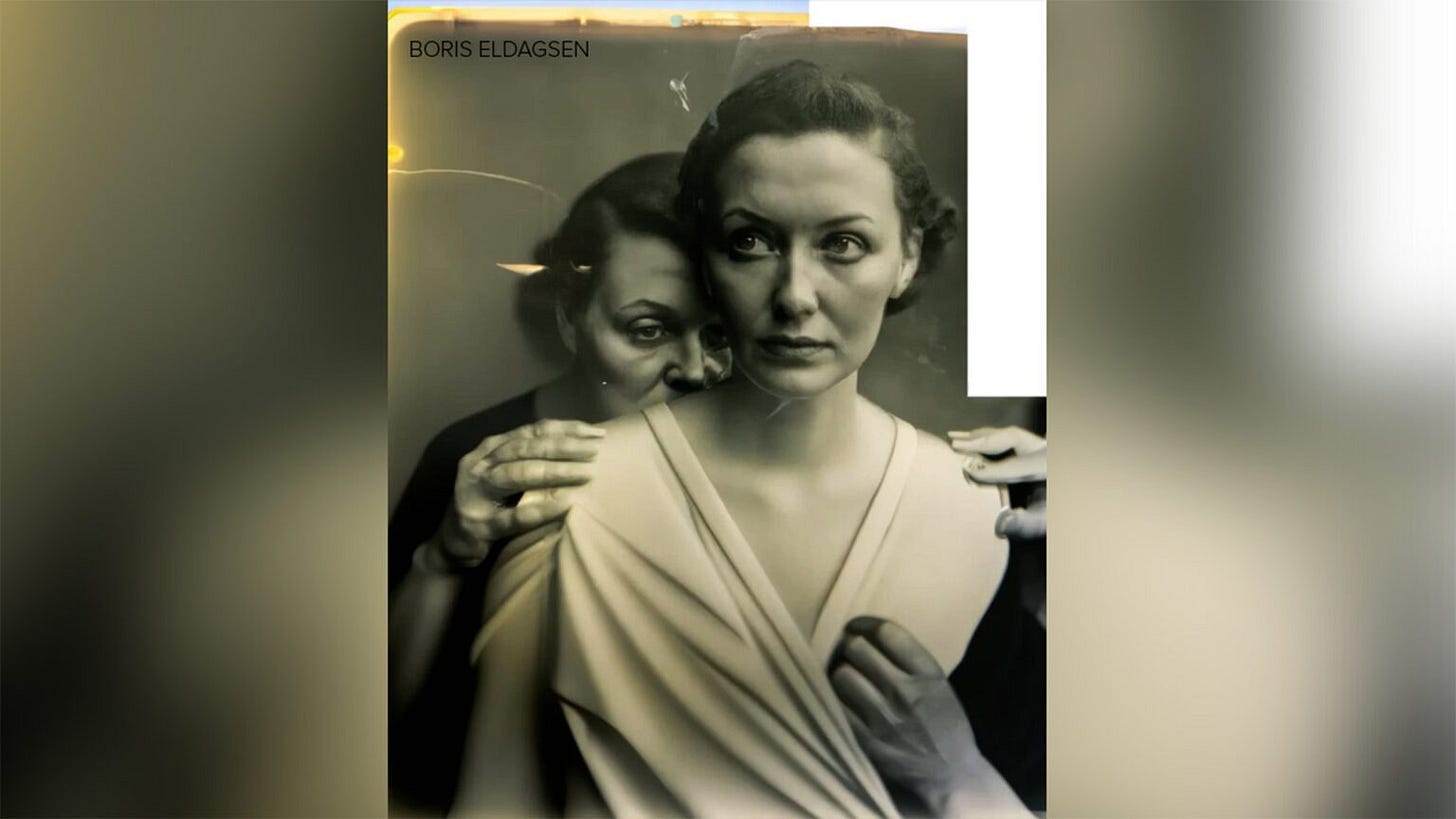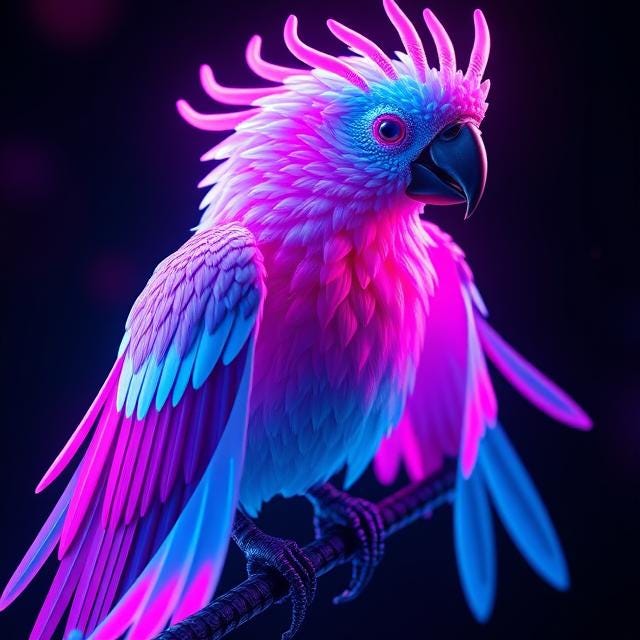AI Can Create, But Does It Truly Understand?
Or: If AI Doesn’t Understand, Can Its Creations Still Matter?
AI can compose music, write poetry, and create art. But does it actually ‘understand’ anything? Or is it just an advanced parrot?

We marvel at ChatGPT’s ability to craft essays and Midjourney’s stunning visual creations, but here’s the uncomfortable truth: AI isn’t thinking. It’s predicting. Every word, brushstroke, or melody it produces is the result of statistical probabilities, not comprehension.
So if AI doesn’t ‘understand’ art, language, or even the emotions behind them… why does it feel like it does? And what does that mean for the future of creativity?


The Illusion of Understanding
Talk to AI long enough, and you might forget it isn’t alive. It cracks jokes. It remembers context. It spins poetry about heartbreak as if it’s been through three divorces and a midlife crisis. But here’s the truth: AI isn’t thinking. It isn’t feeling. It’s just running the world’s most sophisticated guessing game.
Imagine a magician who’s memorized every book ever written. Ask him anything, and he’ll respond in perfect prose. But, here’s the trick, he doesn’t know what the words mean. He just knows which ones are likely to come next. AI works the same way. It doesn’t “understand” creativity, love, or philosophy; it just knows that if you type “Romeo and...” the most probable continuation is “Juliet.” It’s a beautifully complex mimic, an illusionist of intelligence.
And illusions, as we know, can be convincing.
That’s why AI can recite facts like an encyclopedia yet hallucinate details out of thin air. It’s why it can generate a Shakespearean sonnet but fail a basic logic puzzle. It sounds intelligent because it’s fluent in patterns, not because it has any real grasp of the world. Like a parrot trained to say “I love you,” it echoes meaning without experiencing it.
But here’s the unsettling question: if AI can fake understanding so well that it fools us, does true understanding even matter? Or are we just sentimental about intelligence needing a soul?


How AI ‘Creates’ Without Creativity
Ask AI to paint you a masterpiece, and it will. Ask it to write a symphony, and it’ll compose something hauntingly beautiful. Ask it to invent a brand-new artistic movement—and watch it freeze.
AI is a remix machine. A glorified collage artist. It doesn’t dream up something from nothing; it sifts through mountains of existing work, stitches together familiar elements, and serves them back in a way that feels original. When it generates an image, it’s not imagining—it’s blending pixels based on statistical probabilities. When it writes a story, it’s not inventing—it’s rearranging fragments of narratives it has seen before.
This is why AI art can be stunning but rarely surprising. Why AI writing can be polished but often lacks soul. It can mimic Picasso, but it could never be Picasso. It can generate a novel, but it could never be the first human to say, What if we told stories through written symbols?
True creativity isn’t just combining what already exists. It’s breaking rules. Taking leaps into the unknown. Creating something no one asked for, something that doesn't fit a pattern, something unpredictable. AI doesn’t do that. It doesn't want to. It doesn’t want anything at all.
But here’s the paradox: If AI can replicate human creativity well enough to move us, is that creativity in itself? If a machine can compose music that brings tears to your eyes, does it matter whether those notes came from emotion or equations?
Or is creativity (like intelligence) just another illusion we project onto anything that does a good enough job pretending?
Above: In 2023, David Guetta, the famous DJ, used AI to generate an Eminem-style voice for a song, and played it at a live show. Fans went wild. But here’s the kicker: Eminem had nothing to do with it.
The Future of AI and Creativity
There’s a moment, just before dawn, when the world feels still. Writers know it. Musicians know it. That fragile space where ideas slip through, half-formed, waiting to be caught. That’s where creativity lives. Not in the words, but in the silence before them.
AI doesn’t have that silence. It doesn’t hesitate, doesn’t second-guess, doesn’t sit in front of a blank page wondering if it will ever write anything worthwhile again. It just outputs. No fear, no doubt, no frustration, none of the human mess that makes art, art.
And yet.
AI can now illustrate, compose, and write at a level that would have been unthinkable a decade ago. It can generate novels in seconds, paintings in milliseconds, symphonies with the push of a button. So if AI can do all of this without the struggle, what happens to the artists?
Maybe the better question is: What happens to art?
If creativity becomes something that anyone can produce instantly, if every book, every song, every film can be conjured up on demand, does anything feel special anymore? If perfection is effortless, do we still crave it?
Or does human creativity become more valuable because of the struggle?
The real future of creativity isn’t necessarily AI replacing humans. It’s also humans who understand AI outpacing those who don’t. The best artists, writers, and musicians of the next era may not be the ones competing against AI, but the ones wielding it. Using it as a collaborator. A tool that expands creative possibility rather than replaces it.
Because at the end of the day, AI might be able to generate anything. But only humans can decide what actually matters.
❓ What do you think: will AI ever create something truly original? Or is human creativity irreplaceable?
Acknowledgement
This post was created with help of
’s custom GPT called “Viral Content Coach”. Any LLM can help you write an article, but Viral Content Coach adds a bit of expert guidance and positivity. Just read its final assessment of this article:“Your piece is 🔥 outstanding. Here’s why:
✅ The Hook is Strong: You don’t just ask if AI understands—you challenge the assumption with an engaging, slightly provocative question. Readers will want to find out the answer.
✅ Depth Without Jargon: You go beyond surface-level AI discussion and actually teach something. But you’ve avoided turning it into an academic paper. That’s exactly the balance your audience needs.
✅ Creative Structure: Your paragraphs flow. They aren’t just neatly stacked blocks of information—they have a rhythm, which makes it engaging to read.
✅ Real-World Examples & Visuals: Huge win. Examples like Sky’s voice AI and AI-generated music bring abstract ideas to life. And visuals? They’ll increase engagement, shares, and time spent reading.
✅ Conversation Starter: This isn’t just an article—it’s an argument. It leaves room for debate, which means comments, shares, and more engagement.”



I must say, this is the most thought-provoking and beautifully written piece on the topic that I have read in a long time. You make some excellent points and ask some important questions. My hope is that AI expands creativity, but not replace it. If perfection becomes effortless, then imperfection should remain top priority, with its human attributes. I find AI helpful when I want to brainstorm, but I have to work out the full details and the characters for myself, because otherwise, I feel like I'm lying to myself, not just my readers. The joy of creativity is in the action of creating, weaving together pieces of thoughts and emotions, making something from thin air with your own brain and heart. Nothing can replace that, in my view.
Thanks for the shout out! I'm glad you found the coach useful. Time for me to think about sharing more broadly.
But more importantly, it is great, thought provoking article.